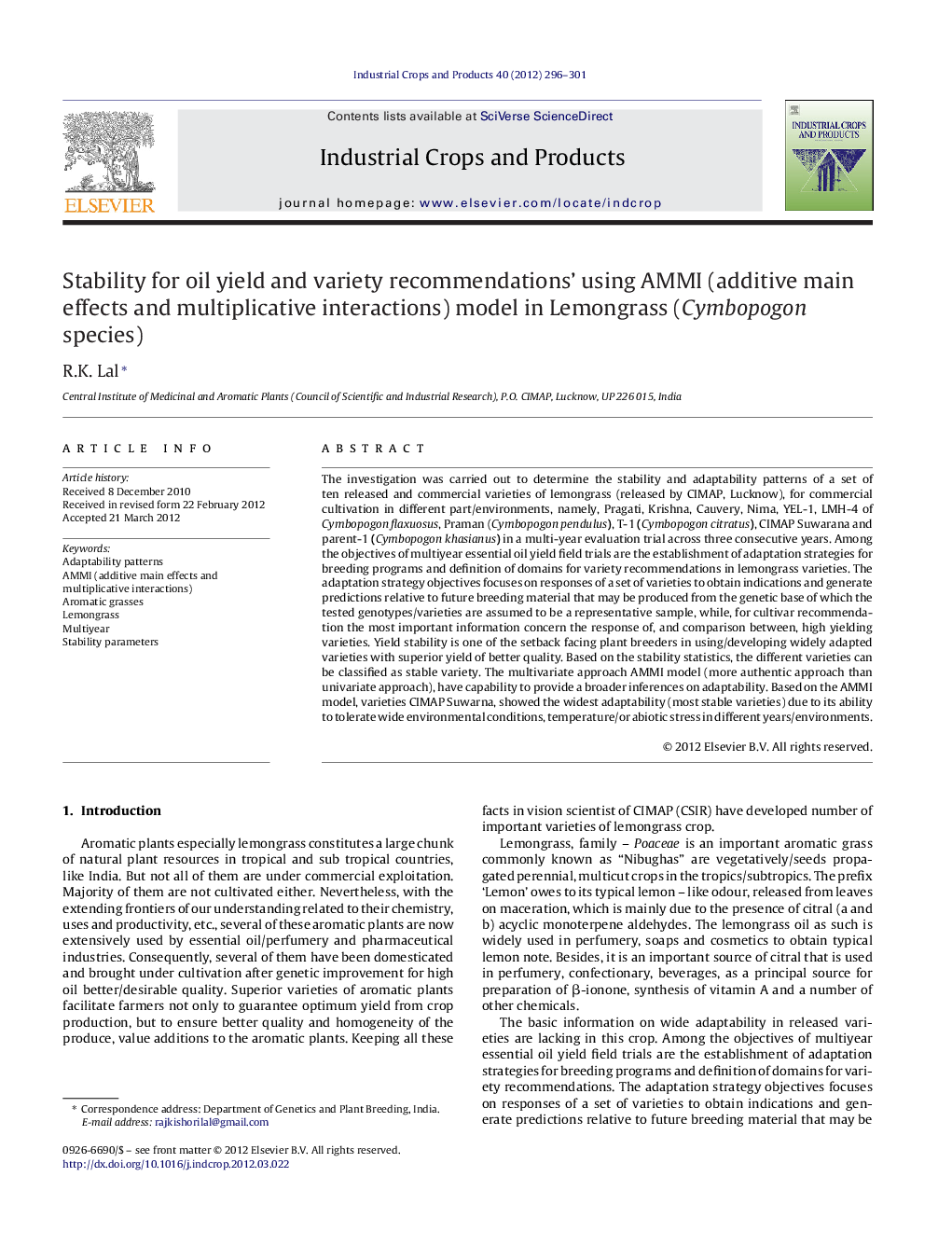| کد مقاله | کد نشریه | سال انتشار | مقاله انگلیسی | نسخه تمام متن |
|---|---|---|---|---|
| 4513994 | 1624869 | 2012 | 6 صفحه PDF | دانلود رایگان |

The investigation was carried out to determine the stability and adaptability patterns of a set of ten released and commercial varieties of lemongrass (released by CIMAP, Lucknow), for commercial cultivation in different part/environments, namely, Pragati, Krishna, Cauvery, Nima, YEL-1, LMH-4 of Cymbopogon flaxuosus, Praman (Cymbopogon pendulus), T-1 (Cymbopogon citratus), CIMAP Suwarana and parent-1 (Cymbopogon khasianus) in a multi-year evaluation trial across three consecutive years. Among the objectives of multiyear essential oil yield field trials are the establishment of adaptation strategies for breeding programs and definition of domains for variety recommendations in lemongrass varieties. The adaptation strategy objectives focuses on responses of a set of varieties to obtain indications and generate predictions relative to future breeding material that may be produced from the genetic base of which the tested genotypes/varieties are assumed to be a representative sample, while, for cultivar recommendation the most important information concern the response of, and comparison between, high yielding varieties. Yield stability is one of the setback facing plant breeders in using/developing widely adapted varieties with superior yield of better quality. Based on the stability statistics, the different varieties can be classified as stable variety. The multivariate approach AMMI model (more authentic approach than univariate approach), have capability to provide a broader inferences on adaptability. Based on the AMMI model, varieties CIMAP Suwarna, showed the widest adaptability (most stable varieties) due to its ability to tolerate wide environmental conditions, temperature/or abiotic stress in different years/environments.
► AMMI model used first time in lemongrass.
► This model is found suitable for partitioning the G × E in lemongrass.
► Based on the AMMI model, variety Suwarna, showed the widest adaptability.
► This was due to its ability to tolerate wide environmental conditions.
Journal: Industrial Crops and Products - Volume 40, November 2012, Pages 296–301